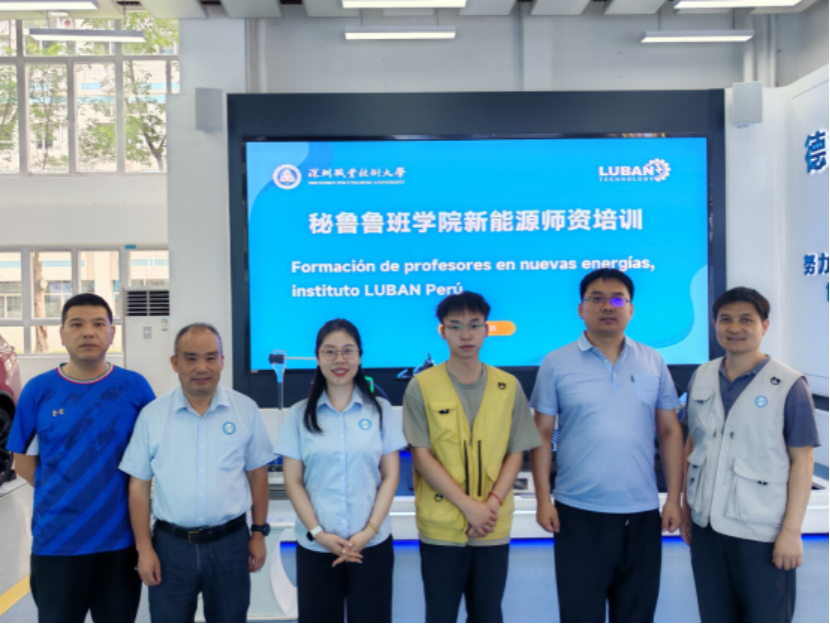
To respond to the national "Vocational Education Going Global" strategy and support talent cultivation in the Belt and Road Initiative's new energy industry, on June 7, the School of Automotive and Transportation's "Vocational Education Going Global" team collaborated closely with Peru Luban Technology to successfully host the first online specialized training session for 15 key faculty members on new energy topics. This training focused on two core modules: high-voltage safety knowledge for electric vehicles and the structure of new energy vehicles. The goal is to precisely deliver China's advanced new energy vehicle technology and vocational education expertise to Peru in South America, injecting strong "Chinese momentum" into cultivating high-quality technical and skilled talent locally.
The training content covers high-voltage safety training for electric vehicles and an understanding of pure electric vehicle construction. First, Instructor Li Zhanyu systematically explained the high-voltage safety protection system, using three-dimensional animations to demonstrate core mechanisms such as high-voltage interlocks and leakage protection, and conducted on-site demonstrations of the repair switch and battery disconnection procedures, while emphasizing the qualification requirements for high-voltage electricity professionals and the importance of high-voltage safety protective equipment. Subsequently, Instructor Sun Yi compared new energy vehicles with traditional fuel vehicles and introduced the current development status and advantages of new energy vehicles. He explained the basic structure of pure electric vehicles, including the body system, chassis system, and power system, with a particular focus on the power battery, motor, and electric drive system. On-site demonstrations and detailed explanations were provided on the technical features of BYD's Blade Battery and eight-in-one electric drive system. Through practical training tasks, the steps for detecting conventional motor performance parameters were demonstrated, including insulation resistance testing and winding resistance testing. This online training innovatively adopted a bilingual assurance mechanism combining "intelligent translation and human proofreading," using AI to generate real-time English translations while professional translators calibrated technical terminology simultaneously, effectively overcoming language barriers in cross-border technical training.
This training will lay a solid foundation for the School of Automotive to systematically and standardizedly build a localized new energy talent development system in Peru and even South America. The School of Automotive will continue to deepen and expand the "vocational education going global" model, integrating high-quality educational resources with cutting-edge industry technologies, partnering with more Belt and Road Initiative collaborators to jointly promote the collaborative cultivation of high-quality technical skills talent in the new energy vehicle sector, and contribute "Shenzhen Polytechnic's strength" to global green energy transformation and sustainable industrial development.
(Zeng Ziming, School of Automotive)
 School Motto:
School Motto:
 Search
Search
 School Motto:
School Motto:
 Search
Search